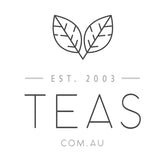Teahouses offer tastes to rival the complexity of wine
Posted by BEV A

At Teance, the tea bar and store in Berkeley, co-owner Winnie Yu takes her place behind the sleek concrete and copper tea bar and, with suppressed excitement, pours the first of the 2007 winter-picked wulong (oolong) tea. The wulong has just arrived from a Li Shan estate in Taiwan, one of the world’s foremost centers of this complex varietal.
Proprietors of other fine Bay Area teahouses, including Roy Fong of Imperial Tea Court and Donna Lo Christy of Far Leaves, are heading to China, Taiwan and Japan to oversee the harvest of artisanally grown Camellia sinensis.
All of them are bringing the best of the leaves back to the Bay Area for the growing numbers of artisan tea aficionados.
January is the start of the premium tea harvest. More of this tea will come through the Bay Area than through any other American gateway. San Francisco historically has been a major center for tea in the United States, and in the 21st century promises to reinvigorate America’s tea culture as never before.
“The Bay Area is the center of the current tea renaissance. No other city has this range and depth,” says Gaetano Maida, executive director of the Tea Arts Institute in Oakland.
The popularity of artisan tea is being fueled by places such as Far Leaves and Teance teahouses, Starbucks-like cafes such as Teavana and food-and-tea restaurants such as Samovar. These ventures have moved today’s tea culture beyond the traditional Chinatown establishments to urban destinations, suburban neighborhoods and even shopping malls.
The world of artisan teas in many ways parallels fine wines. The cognoscenti resemble wine connoisseurs, developing discriminating palates to appreciate the teas, and using a language that parallels wine appreciation – vintages, single estates, harvest time and method, not to mention all the descriptors for the taste of tea, such as acid, tannins, weight, fruit, earth aromas and mineral characteristics.
Premium teas are whole leaf teas that come from specific estates or gardens, and are designated by varietal and year of harvest – like vintage wine. They’re different from blends of chopped or scented teas, such as English breakfast, Earl Grey and Lapsang Souchong, and very different from the mass-market tea bags made of finings, the dust left on the floor after the tea leaves dry.
The current interest in premium tea, and teahouses, is just the latest development in the growing mainstream appreciation of tea, which began 20 years ago as Baby Boomers searched for a low- or non-caffeinated alternative to coffee. Reports about tea’s possible health benefits also fueled the boom.
Today’s boom is planted on fertile ground. Tea packagers such as Republic of Tea, Mighty Leaf Tea Company, Numi, Leaves and Silk Road all began in the Bay Area, and now command a national market.
The focus has expanded to artisan teahouses and suppliers, such as Teance, Far Leaves, Imperial Tea Court and Lupicia, to name a few. Here’s a look at these major players in the Bay Area’s new tea scene.
Winnie Yu, Teance: Teance, which opened last fall, is the reincarnation of Yu’s first tea store, Celadon, which she opened several years ago at a different location in Berkeley.
Yu, 37, came to the United States from Hong Kong as a child and attended UC Berkeley. Missing the types of teas she drank from age 4, she began acquiring, exchanging and investing in premium teas with devotees and friends who traveled to Hong Kong, Taiwan, Japan and China.
“I wanted to introduce the public to wonderful teas,” she says. “And I wanted to support the small farms that make a living out of growing tea.” Yu’s sources range from gardens that cover one hill to plantations in the Anxi region of China that occupy four mountains.
At the heart of Teance is a circular, heated and stone-imbedded concrete bar in the shape of the Chinese gaiwan, the classic, covered cup-bowl used for some Chinese tea services. Patrons can choose from a menu of any of the 60-plus teas in the store, from white, green, wulong, black, herbal and puer teas, for $5 per person.
Taking a cue from wine culture, Teance offers tasting flights of tea, ranging from $5 for a single tea to $15 for three or four teas. A suggested pairing with tea-flavored artisanal chocolates from Charles Chocolates of Emeryville is also on the menu.
Yu offers classes in fine teas and tea making, but offers these tips for neophytes:
– Ninety percent of fresh teas are seasonal.
– Tea is best unblended. “Farmers pick meticulously according to freshness. There’s a 9 o’clock picking, or a pre-dawn picking, that separates batches of tea.”
– Know your farmer or elevation. Generally, the higher the better.
– Ask about craftsmanship – in other words, who is roasting your tea. Over-roasted tea loses its delicacy and herbaceous character. Under-roasted retains moisture.
SHARE:

AUSTRALIA'S FINEST LOOSE LEAF TEAS
Explore Australia's largest selection of Premium Teas & All-Natural Organic Herbal Blends.

